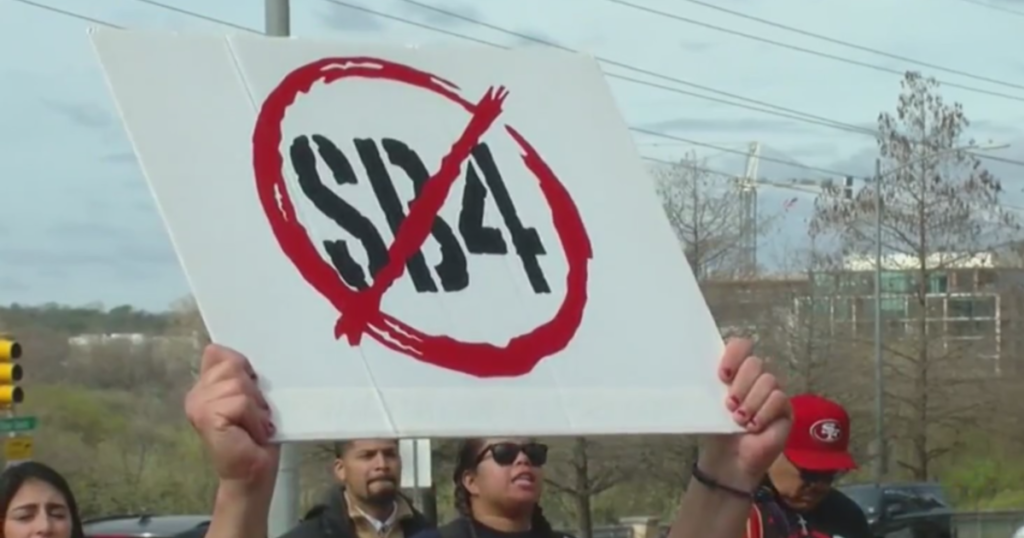A panel of federal appeals court judges continued to block Texas from arresting and jailing migrants under the state’s immigration law known as SB4. The 5th Circuit Court of Appeals judges denied Texas’ request to suspend the lower court order that found SB4 unconstitutional and in conflict with federal immigration laws. Texas will be prohibited from enforcing SB4 until further court action is taken, and a hearing is scheduled on April 3 to consider the law’s legality and constitutionality.
Texas passed SB4 last year, which would create state crimes for entering or reentering the state from Mexico outside an official port of entry. Law enforcement officials at all levels would be authorized to stop, jail, and prosecute migrants suspected of violating these new state criminal statutes. SB4 would also allow for migrants to be ordered to return to Mexico instead of facing prosecution. Governor Greg Abbott and other Texas officials have defended the law as necessary to combat illegal immigration and have criticized the Biden administration for not doing enough to deter migrants from coming to the U.S. illegally.
However, SB4 has faced criticism from migrant advocates, the Biden administration, and the Mexican government, which has called the law “anti-immigrant” and stated that it will reject migrants returned by the state. The Biden administration has filed a lawsuit against SB4, arguing that the state measure jeopardizes diplomatic relations with Mexico, ignores U.S. asylum law, and obstructs federal immigration enforcement responsibilities. Two judges on the 5th Circuit panel appeared to agree with the administration’s arguments, stating that immigration control is exclusively a federal power and that SB4 creates separate state criminal offenses regarding unauthorized entry into Texas.
The legal battle over SB4 is ongoing, with the 5th Circuit Court of Appeals maintaining the block on enforcing the law while it considers the case. The outcome of the hearing scheduled for April 3 will determine whether SB4 is lawful and constitutional. Texas officials continue to defend the law as a necessary tool to address illegal immigration, while critics argue that it undermines federal immigration laws and diplomatic relations with Mexico. The future of SB4 remains uncertain as legal challenges and debates over immigration policy continue to unfold.

